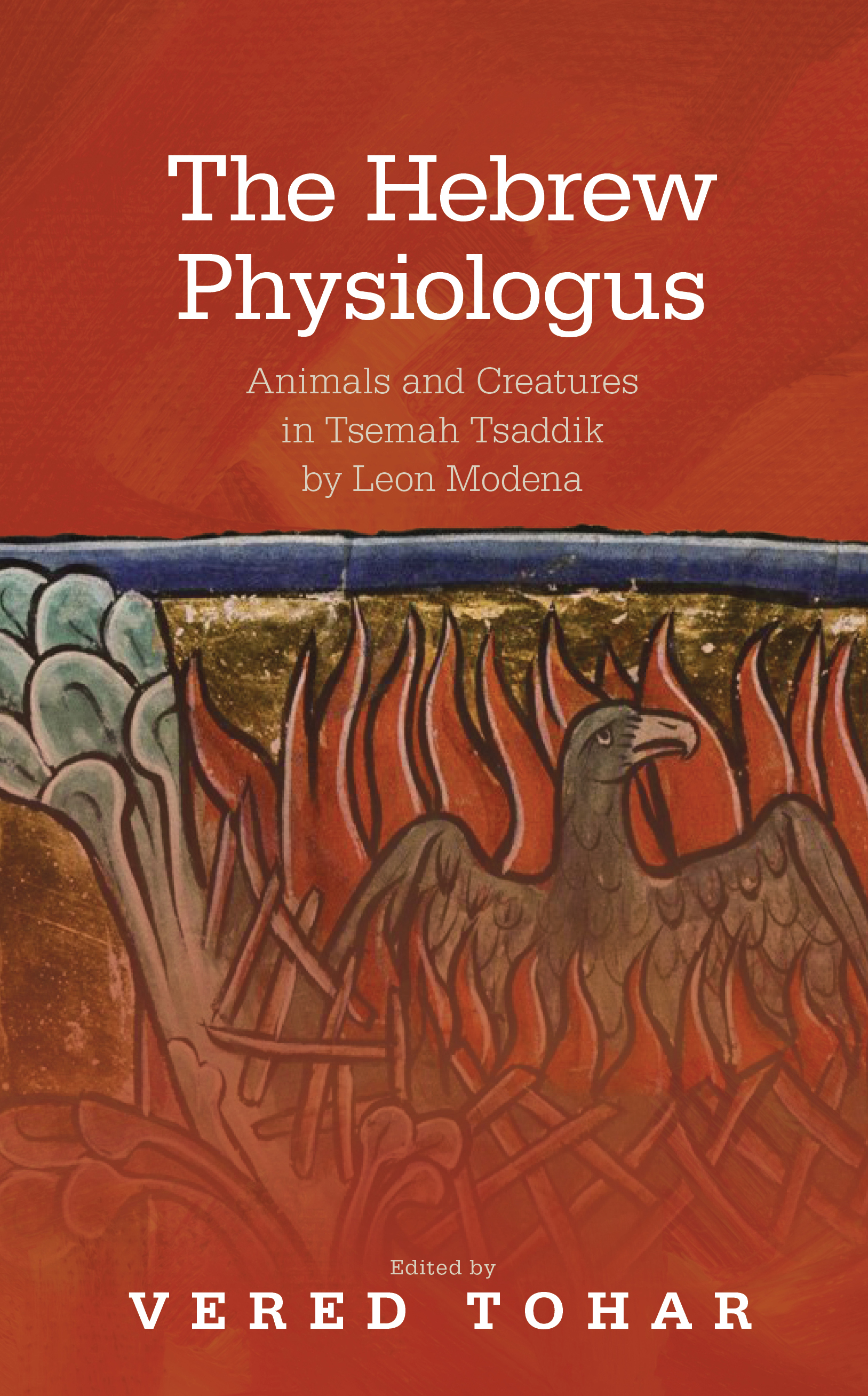The Hebrew Physiologus
Animals and Creatures in Tsemah Tsaddik by Leon Modena
Editor(s) Vered Tohar
Language: English
Genre(s): Literary Criticism
Series: Medieval Animals
- January 2025 · 136 pages ·216x138mm
- · Hardback - 9781837722433
- · eBook - pdf - 9781837722440
- · eBook - epub - 9781837722457
An annotated edition of Leon Modena’s Hebrew Musar book Tsemaḥ Tsaddik (‘Pious Plant’), originally published in Venice in 1600. Tsemaḥ Tsaddik follows the format of a medieval Physiologus, where each chapter corresponds to a specific animal and addresses various human behaviors, traits, vices or virtues. Additionally, each chapter features an explanation of its theme, evidenced by quotes from the Old Testament, Greek and Roman philosophers, Rabbinic Sages and fathers of the Church – along with at least one folktale. The translation is accompanied by a thorough and comprehensive introduction to describe the world of Musar pre-modern books, and offers insights into Modena’s cultural context.
‘The Hebrew Physiologus is an enchanting journey into the cultural world of pre-modern Italian Jewry—a long-overdue exploration that has now been masterfully undertaken by the skilled hands of Professor Vered Tohar. The book opens with a fascinating introduction that situates this unique Hebrew work within the rich context of medieval Christian bestiaries, fables, exempla, and folkloric literature. This is followed by an exquisite translation, presented here for the first time, of the remarkable yet previously neglected Physiologus. Tohar’s work is a true gift to the fields of early modern and Jewish studies, illuminating a treasure that has remained in the shadows for far too long.’
Tovi Bibring, Associate Professor of Medieval Studies and the Chair of the Department of French Culture, Bar-Ilan University
Contents
Acknowledgements
Introduction
The World of the Pre-Modern Jewish Storyteller
Tsemaḥ Tsaddik as a Hebrew Physiologus
Tsemaḥ Tsaddik as a Translated Adaptation of Fiore di Virtù (‘Flower of Virtue’)
Tsemaḥ Tsaddik as a Hebrew Florilegium
The Art of Leon Modena’s Storytelling
The Flexibility of a Bold Author: Original Contents in Tsemaḥ Tsaddik
Between Cultural Systems: Tsemaḥ Tsaddik as a Cultural Crossroads
The Creatures in this Anthology
Works Cited
The Text
Chapter 1: On the virtue of love, in general
Chapter 2: On the love of God
Chapter 3: On the love of father, mother and relatives
Chapter 4: On friendship
Chapter 5: On natural love
Chapter 6: On the love of women
Chapter 7: On envy
Chapter 8: On happiness
Chapter 9: On worry
Chapter 10: On peace
Chapter 11: On anger
Chapter 12: On charitable acts
Chapter 13: On cruelty
Chapter 14: On generosity
Chapter 15: On greed
Chapter 16: On admonition
Chapter 17: On flattery
Chapter 18: On diligence
Chapter 19: On foolishness
Chapter 20: On justice and judgement
Chapter 21: On wrongdoing and lawlessness
Chapter 22: On loyalty
Chapter 23: On dishonesty and deceit
Chapter 24: On truthfulness
Chapter 25: On lying
Chapter 26: On bravery
Chapter 27: On cowardice
Chapter 28: On largesse
Chapter 29: On vanity
Chapter 30: On strength and fortitude
Chapter 31: On fickleness
Chapter 32: On temperance
Chapter 33: On lasciviousness
Chapter 34: On humility
Chapter 35: On pride
Chapter 36: On abstinence
Chapter 37: On drunkenness and gluttony
Chapter 38: On modesty
Chapter 39: On adultery
Chapter 40: On integrity and good manners
Notes
Index
Author(s): Vered Tohar
Vered Tohar is Head of the Literature of the Jewish People department at Bar-Ilan University Ramat-Gan.

